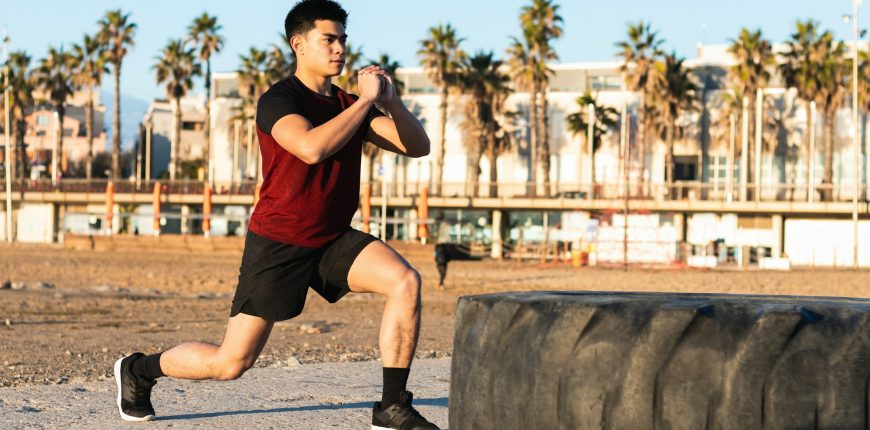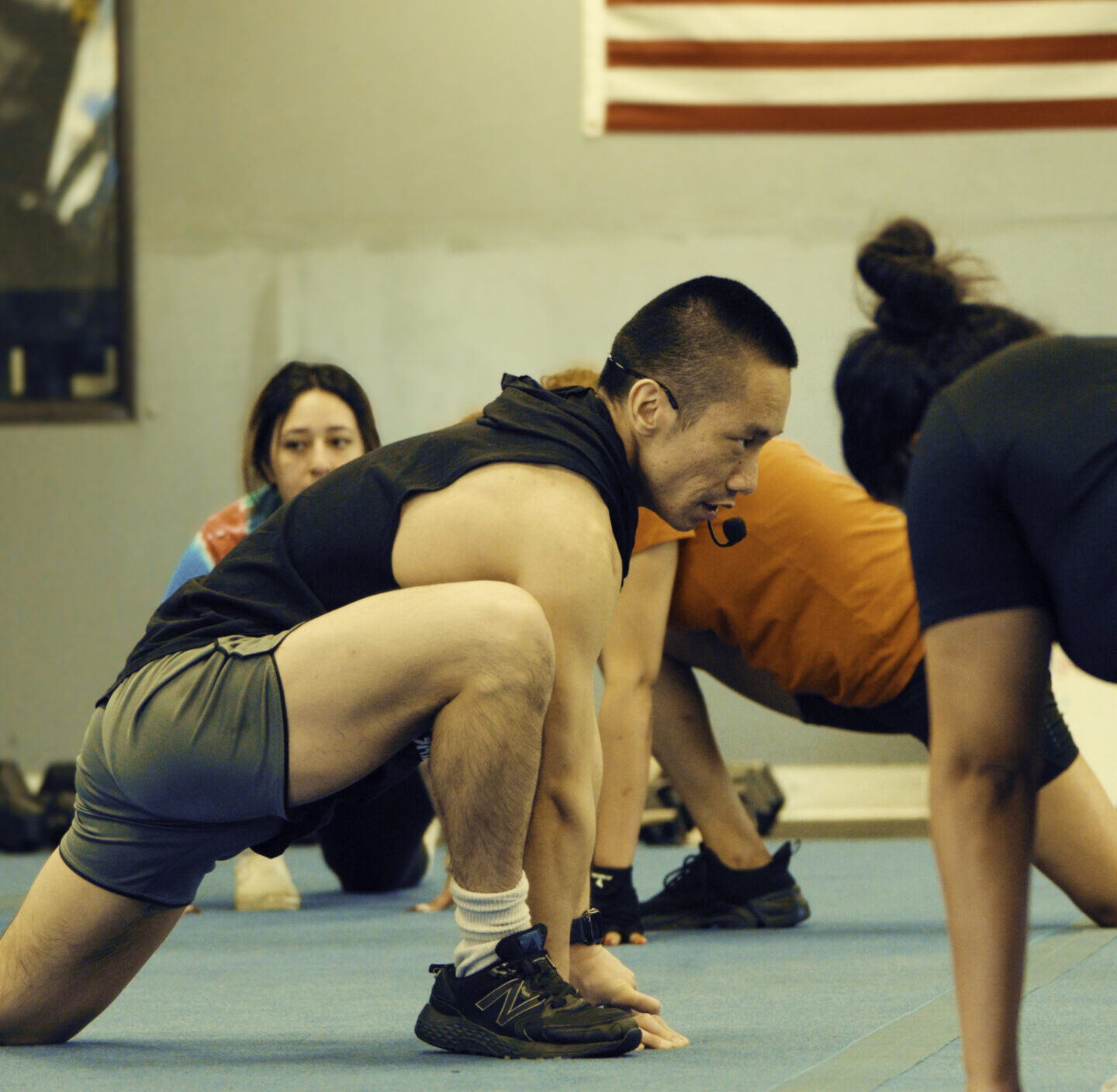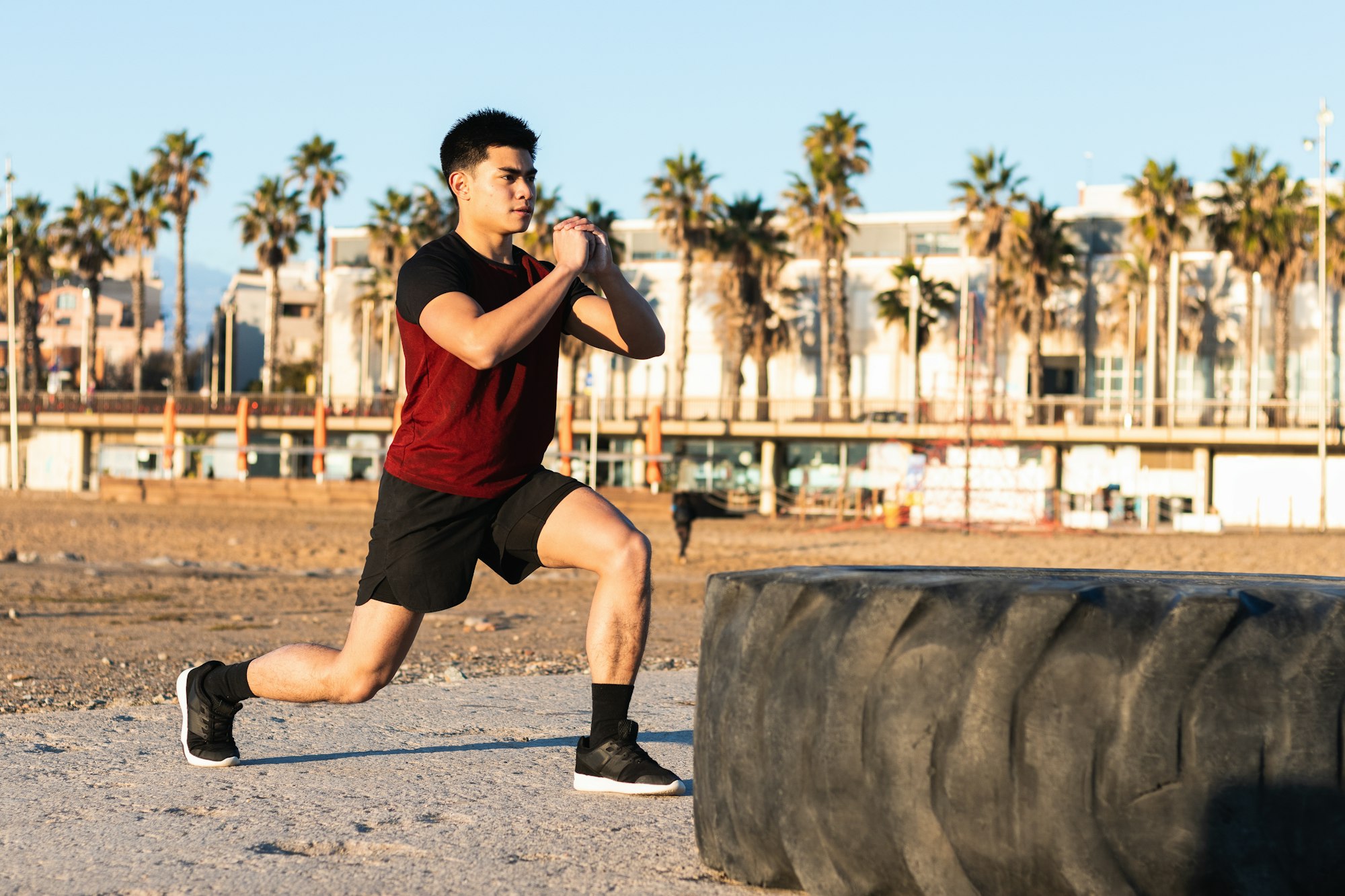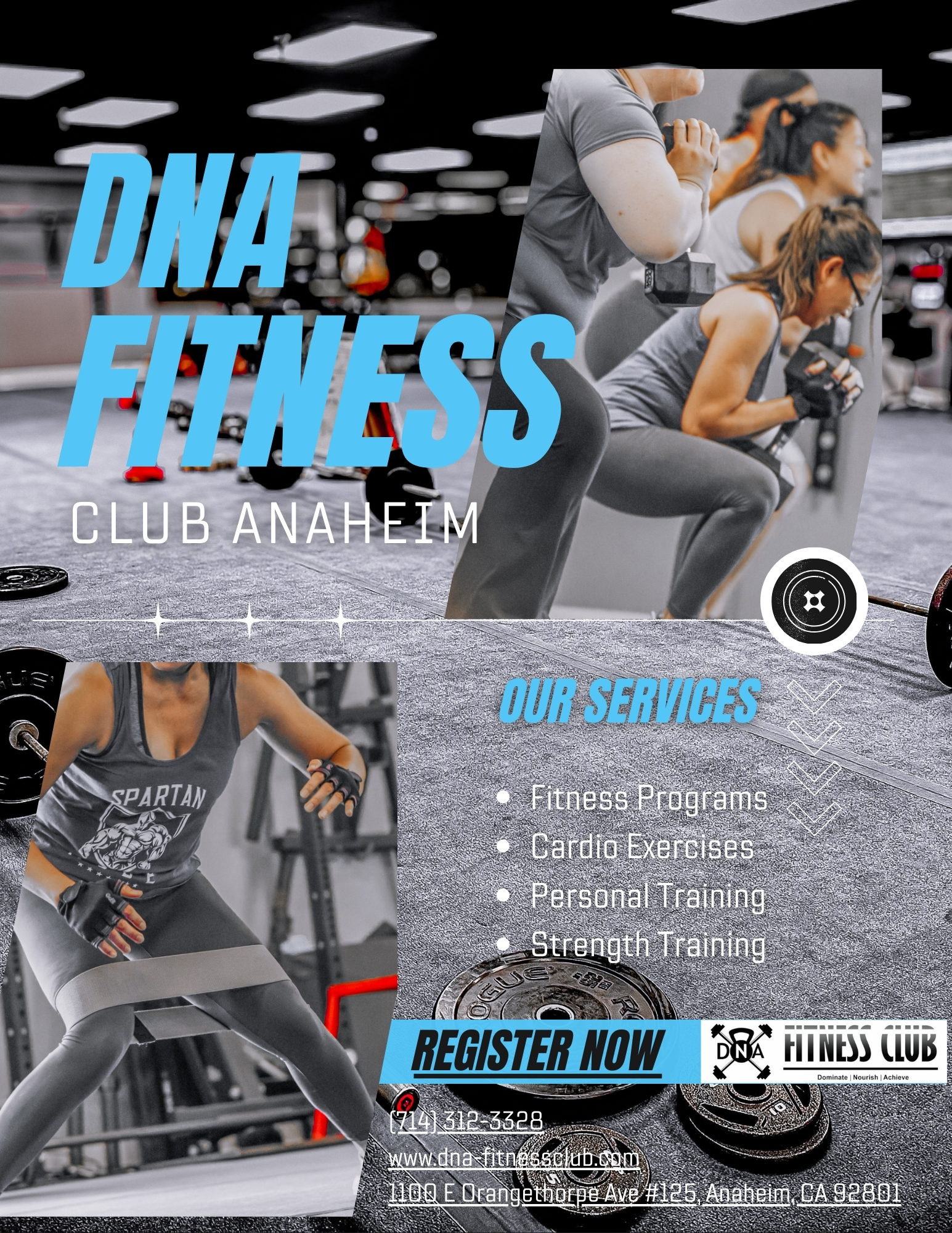Your fitness journey doesn’t require a gym membership or fancy equipment. With a little space and determination, you can start getting in shape right at home. This guide will walk you through some effective home exercises designed for the average, healthy individual looking to improve their fitness. We’ll also discuss how long it typically takes to see improvements, the best foods to fuel your body, and the importance of proper form and technique.
Understanding the Basics
Before diving into exercises, it’s essential to grasp some fundamental principles of fitness. Consistency is key; regular exercise is crucial for improvement. Progressive overload, which means gradually increasing the difficulty of your workouts, is necessary to continue making progress. Lastly, variety is important to target various muscle groups and avoid monotony.
Warm-Up Routine
Starting your workout with a warm-up is like waking up your muscles. A good warm-up gets your blood flowing, increases your heart rate, and prepares your muscles for the work ahead. Spend 5-10 minutes warming up with exercises like jumping jacks, high knees, arm circles, and leg swings. This routine will not only help prevent injuries but also improve your performance during the workout.
Core Home Exercises
Building a strong foundation starts with mastering core exercises that target major muscle groups and can be adapted as you progress. Incorporating a variety of effective movements into your workout routine is essential for overall strength and endurance. In this guide, we’ll delve into key exercises such as squats, push-ups, planks, lunges, and glute bridges. Each of these exercises plays a crucial role in developing strength and stability across different areas of your body, and they can be modified to suit your fitness level as you advance. Whether you’re just starting or looking to refine your routine, these core exercises will help you achieve your fitness goals. Let’s explore some core exercises that target major muscle groups and can be modified as you progress:
Squats
Squats are fantastic for building strength in your quadriceps, hamstrings, and glutes. Stand with your feet shoulder-width apart. Lower your body as if you’re sitting back into a chair, keeping your chest up and knees over your toes. Push through your heels to return to standing. Start with 3 sets of 12-15 reps.
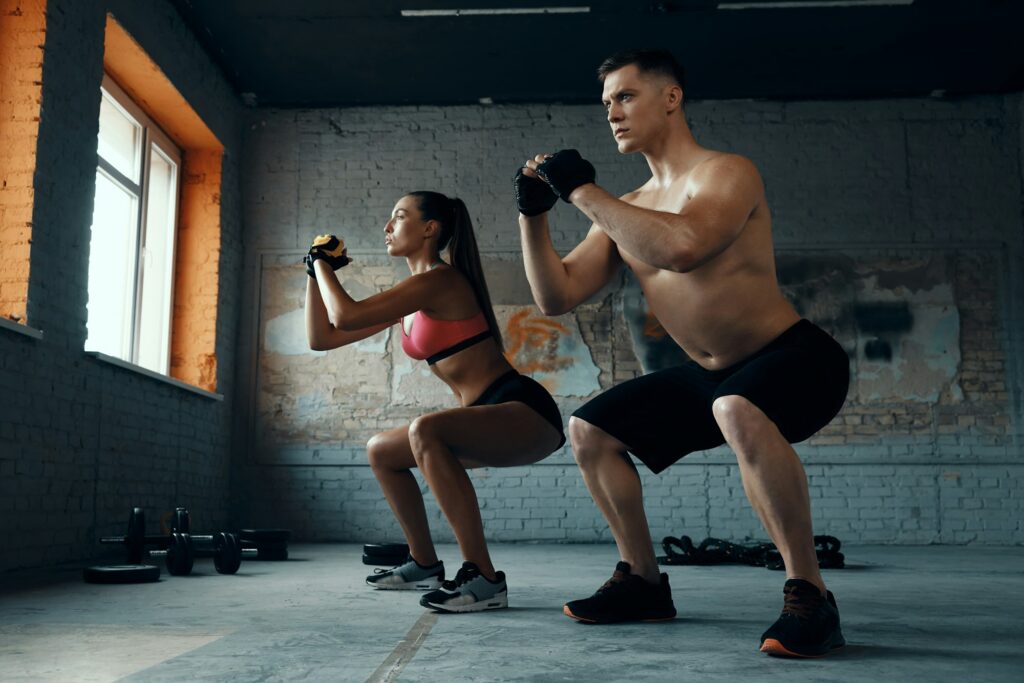
Push-Ups
Push-ups are great for your chest, triceps, and shoulders. Start in a plank position with your hands slightly wider than shoulder-width apart. Lower your body until your chest almost touches the floor, then push back up. If this is too challenging, you can modify by doing push-ups on your knees. Aim for 3 sets of 10-12 reps.
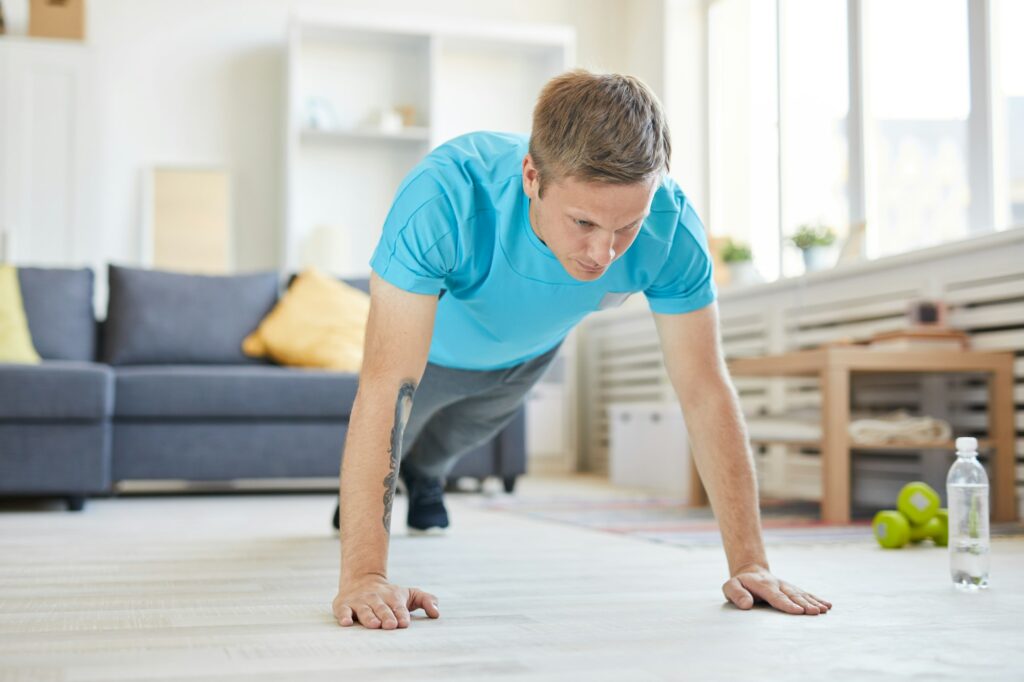
Plank
Planking is an excellent exercise for your core, shoulders, and back. Hold a push-up position with your body straight from head to heels. Engage your core and hold this position for as long as you can, starting with 30 seconds and working up to 60 seconds for 3 sets.
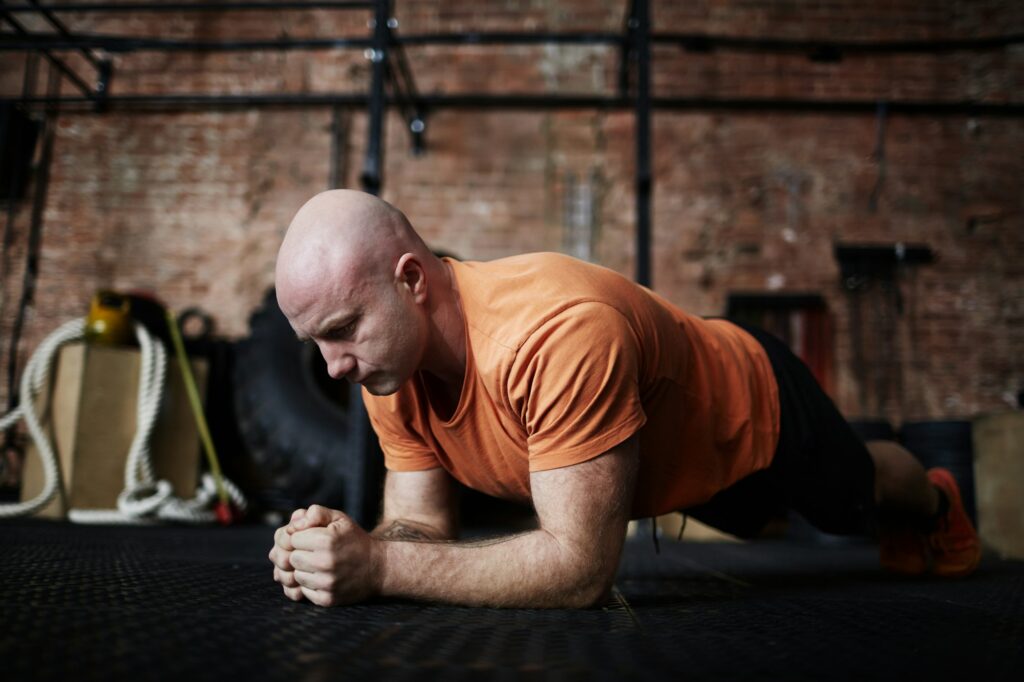
Lunges
Lunges work your quadriceps, glutes, and hamstrings. Step forward with one leg and lower your body until both knees are at 90-degree angles. Push back to the starting position and repeat on the other leg. Do 3 sets of 10-12 reps per leg.
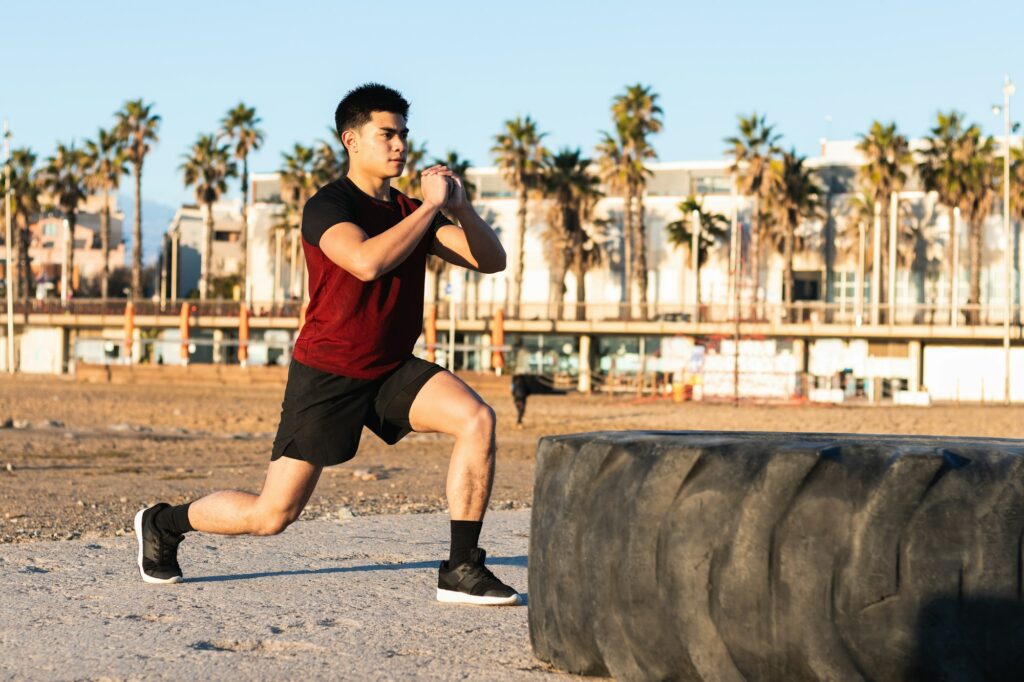
Glute Bridges
Glute bridges target your glutes, hamstrings, and core. Lie on your back with your knees bent and feet flat on the floor. Lift your hips until your body forms a straight line from shoulders to knees, squeezing your glutes at the top. Perform 3 sets of 12-15 reps.
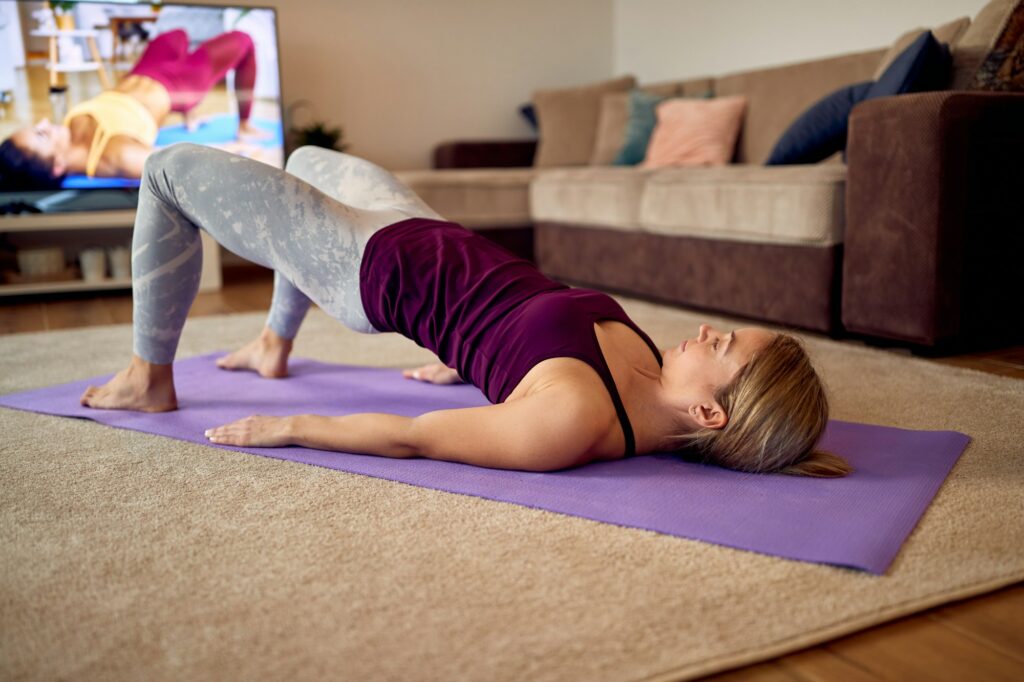
Cool Down and Stretch
After your workout, spend 5-10 minutes cooling down and stretching. This helps enhance flexibility and aids recovery. Include stretches for your hamstrings, quadriceps, chest, and back. Hold each stretch for at least 30 seconds to get the full benefit.
Seeing Improvements: The Timeline
One of the most common questions for beginners is, “How long will it take to see results?” The answer varies depending on several factors, including your starting fitness level, the consistency of your workouts, and your diet. Generally, you can expect to notice some changes in about four weeks. These changes might be subtle, such as feeling stronger, having more energy, or noticing a slight improvement in muscle tone.
By the eight-week mark, more noticeable changes should occur. Your endurance will improve, you might start losing weight, and your muscles will become more defined. Significant changes, such as substantial weight loss or major muscle gains, typically take about 12-16 weeks. Remember, everyone’s body responds differently, so it’s important to stay patient and consistent.
Fueling Your Body: Diet and Nutrition
Exercise is just one part of the equation. Nutrition plays a crucial role in achieving your fitness goals. Eating the right foods can boost your energy levels, improve recovery, and help build muscle.
Foods to Eat
- Protein-Rich Foods: Protein is essential for muscle repair and growth. Include lean sources of protein like chicken, turkey, fish, eggs, tofu, and legumes in your diet.
- Complex Carbohydrates: Carbs provide the energy needed for your workouts. Opt for complex carbs like whole grains, oats, quinoa, and sweet potatoes.
- Healthy Fats: Fats are necessary for hormone production and overall health. Include sources of healthy fats such as avocados, nuts, seeds, and olive oil.
- Fruits and Vegetables: These are packed with vitamins, minerals, and antioxidants. Aim for a variety of colors to ensure you’re getting a range of nutrients.
- Hydration: Water is crucial for every bodily function, including muscle recovery and performance. Aim to drink at least 8 cups of water a day, more if you’re exercising intensely.
Beneficial Diets
Several diets can support your fitness goals. Here are a few popular ones:
Mediterranean Diet
This diet emphasizes fruits, vegetables, whole grains, lean proteins, and healthy fats like olive oil. It’s known for its heart health benefits and can support overall well-being and fitness.
Paleo Diet
The paleo diet focuses on eating whole, unprocessed foods similar to what our ancestors would have eaten. It includes meats, fish, vegetables, fruits, nuts, and seeds while excluding processed foods, grains, and dairy.
Vegetarian/Vegan Diets
These plant-based diets can provide all the nutrients you need if well-planned. They focus on fruits, vegetables, whole grains, nuts, seeds, and legumes. For vegans, it’s important to include sources of vitamin B12, iron, calcium, and omega-3 fatty acids.
High-Protein Diet
A high-protein diet can be beneficial for muscle building and recovery. It emphasizes lean meats, fish, dairy, legumes, and protein supplements. It’s important to balance it with adequate carbs and fats.
The Importance of Form and Technique
Proper form and technique are critical to getting the most out of your workouts and preventing injuries. Here’s a closer look at how to perform some of the core exercises correctly:
Squats
When performing squats, ensure your feet are shoulder-width apart, and your weight is on your heels. Keep your chest up and back straight as you lower your body. Your knees should track over your toes but not extend past them. Avoid rounding your back or letting your knees collapse inward.
Push-Ups
For push-ups, start in a plank position with your hands slightly wider than shoulder-width. Your body should form a straight line from head to heels. Lower your body by bending your elbows, keeping them close to your body. Push back up without letting your hips sag or pike.
Plank
When holding a plank, keep your body in a straight line from head to heels. Engage your core by pulling your belly button towards your spine. Avoid letting your hips drop or sticking your butt up in the air. Keep your head in a neutral position, looking down at the floor.
Lunges
In lunges, start with your feet together. Step forward with one leg, lowering your body until both knees are bent at about 90 degrees. Your front knee should be directly above your ankle, and your back knee should hover just above the floor. Push through your front heel to return to the starting position.
Glute Bridges
For glute bridges, lie on your back with your feet flat on the floor and knees bent. Lift your hips towards the ceiling, squeezing your glutes at the top. Your body should form a straight line from your shoulders to your knees. Lower your hips back down without letting them touch the floor.
Staying Motivated
Staying motivated on your fitness journey can be challenging, but there are several strategies to help you stay on track:
- Set Clear Goals: Define what you want to achieve and set realistic, measurable goals. This could be anything from losing a certain amount of weight to running a 5K.
- Track Your Progress: Keep a workout journal or use a fitness app to track your workouts and progress. Seeing your improvements over time can be very motivating.
- Mix It Up: Avoid workout boredom by varying your exercises and routines. Try new workouts, increase intensity, or add new challenges.
- Find a Workout Buddy: Exercising with a friend can make workouts more enjoyable and hold you accountable.
- Celebrate Small Wins: Celebrate your progress, no matter how small. Each step forward is a success.
Starting your fitness journey at home is entirely feasible with the right approach. Focus on consistency, incorporate a variety of exercises, and pay attention to your nutrition and hydration. Remember, the key to success is patience and perseverance. Improvements may take time, but with dedication and effort, you’ll start to see and feel the results. Stay motivated, enjoy the process, and embrace the positive changes you’re making for your health and well-being. Happy exercising!

